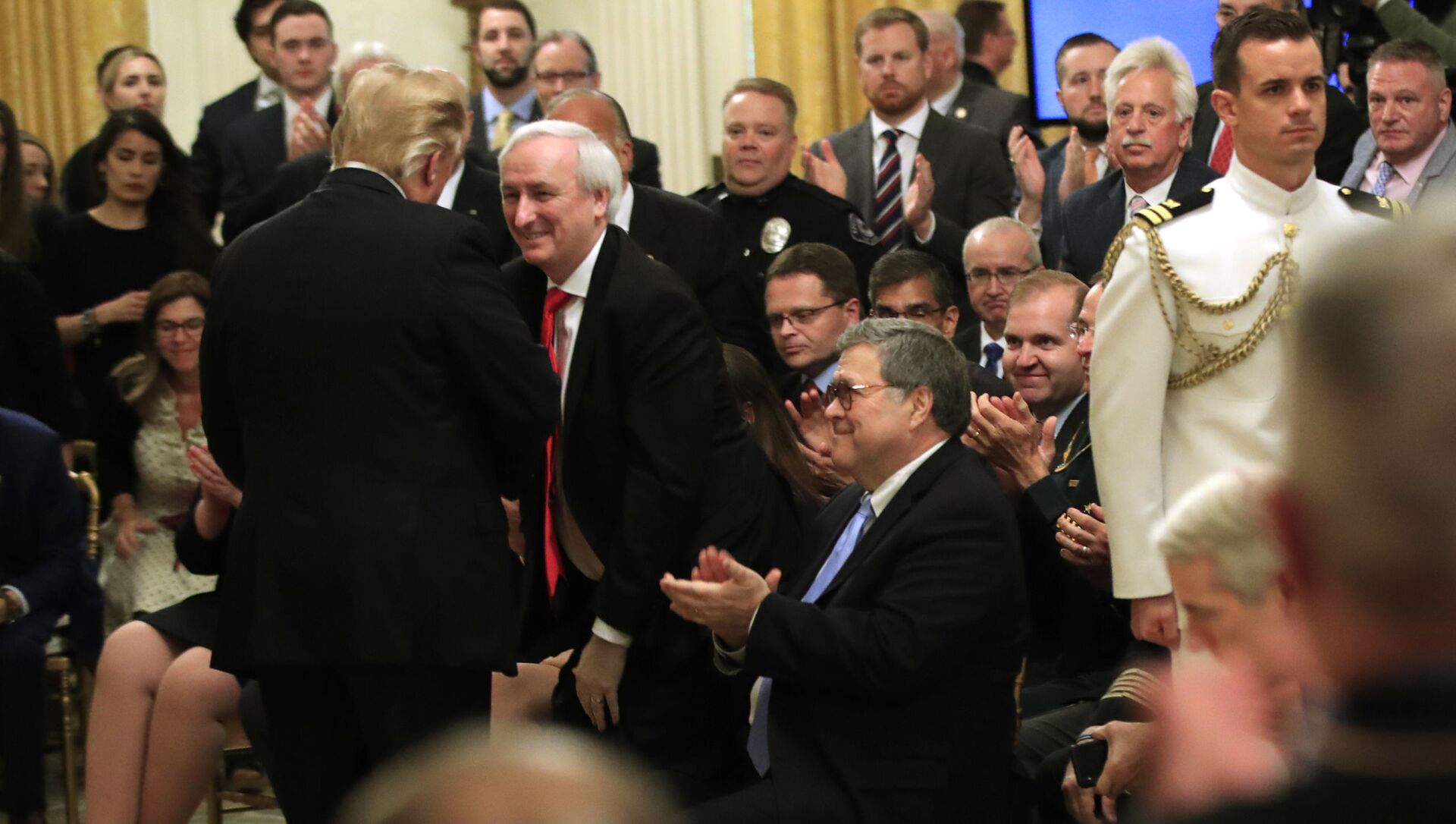Ex-Trump AG Reportedly Persuaded POTUS Not to Launch Case to Overturn Election in Key Swing States

© AP Photo / Manuel Balce Ceneta
Subscribe
Donald Trump spent the last two-and-a-half months of his presidency alleging that the 2020 election had been ‘rigged’ against him using faulty voting machines and fraudulent mail-in ballots in key swing states. State courts threw out his fraud claims, and the Supreme Court knocked down an attempt by Texas to contest results in other states.
Former acting Trump attorney general Jeffrey Rosen personally persuaded the president not to proceed with a major lawsuit aimed at overturning the 2020 election results in key battleground states, Politico reports, citing two sources said to be familiar with Rosen’s testimony to Senate investigators last Saturday.
According to the report, Rosen told investigators that he had conveyed to Trump that filing the 54-page legal complaint ‘wasn’t a good idea’ and that it should be shelved.
Trump and Rosen reportedly spoke by telephone in late December, with the president asking his acting attorney general, who was hired to replace outgoing Trump AG Bill Barr, why the Justice Department wasn’t ‘doing more about’ the election.
The legal complaint, made available in PDF form by the House Oversight Committee in a compilation of papers related to President Trump’s “pressure campaign on the department of justice,” asked the Supreme Court to rule that the Electoral College results from six key swing states where the Trump campaign alleged systemic vote fraud “cannot be counted.”
The complaint urged the highest court in the land to order a separate “special election” in the affected states.
The Trump campaign alleged that systemic vote fraud had taken place in Pennsylvania, Georgia, Michigan, Wisconsin, Nevada and Arizona.
The lawsuit was drawn up by Kurt Olsen, a private attorney who worked with the state of Texas in its own filing in early December with the Supreme Court to contest election results in the battleground states where allegations of fraud had been made. Attorneys representing Texas argued that state officials in Georgia, Michigan, Pennsylvania and Wisconsin had willfully “exploited” the coronavirus pandemic to “justify ignoring federal and state election laws” to make “unlawful” last-minute changes to “skew” the results of the vote through the receipt, evaluation and counting of “unlawful ballots.” The Supreme Court threw out Texas’ complaint, arguing that the state had no right to make election-related demands outside its own home jurisdiction.
Back-and-forth emails between Rosen and senior administration officials released by the Oversight Committee showed Rosen expressing skepticism relating to the fraud claims, including the Olsen-proposed lawsuit and separate requests to probe alleged fraud in New Mexico and Georgia. On the Olsen case, Rosen expressed his concerns about a lack of Supreme Court precedent. Ultimately, the DoJ didn’t sign off on the Olsen complaint.
Rosen served as Trump’s deputy attorney general between May 2019 and December 2020, and succeeded Bill Barr as attorney general when the latter resigned on 23 December 2020. Trump had expressed deep satisfaction with Barr’s performance in the final two months of his work as attorney general, going so far as to allege that the justice department and the FBI were possibly “involved” in the “totally rigged” elections. Barr indicated repeatedly that he saw no evidence to suggest that the election results would be manipulated starting in the summer of 2020, when Trump first began complaining about the supposed fraud-related dangers of unsolicited mail-in ballots.
Despite claiming to have “hundreds and hundreds” of sworn affidavits and “thousands” of witness testimonies regarding fraud, the Trump campaign failed to get any of its cases heard in a state court. However, recently, new election audits in Georgia and Arizona have shown some irregularities, prompting Donald Trump to once again reiterate his long-standing allegations that the election was “stolen” from him.




